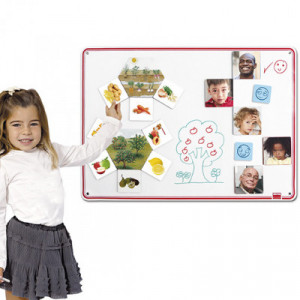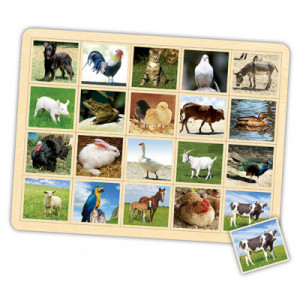Learning Disorders (LD)
Specific learning disorders are those that make it difficult for children to acquire knowledge, affect their ability to receive, process, analyse or store information. As a result, they can cause problems with reading, writing, spelling words, or solving mathematical problems.
If you are looking for materials for children with dyslexia, dyslexia, dysalculia, dysgraphy or dyspraxia, here is a selection of games, materials and solutions so you can easily choose the most appropriate.

Parental Involvement in the Treatment of Learning Disorde
Learning disorders are considered learning disabilities if they significantly interfere with a child's daily life at home and in school. Children's poor academic performance is often confused with a problem of attitude or immaturity; however, the hidden factor behind poor school performance is an undiagnosed or untreated learning disorder.
If parents or educators suspect that their children may have learning difficulties, it is essential to see a specialist for an evaluation and diagnosis of the child. Educational games help parents to motivate their child to learn in a playful environment that frees him/her from the stress of formal learning and does not put pressure on him/her to achieve results. These home activities are a reinforcement of professional treatment and should be coordinated with teachers and psychotherapists.
Games for children with dysclacluia
Gertsman's acalculia, or syndrome, is characterized by difficulty in handling arithmetic rules or understanding numbers. Parents can contribute to therapy with specific association games for dyscalculia.
Children can also be introduced to numbers and their operations from different perspectives, such as improving literacy to help them understand problem statements and break them down into as many steps as possible.
Games for children with dysgraphia
A child's writing ability is lower than expected because of his or her age and intelligence. The treatment consists of a psychomotor part, which deals with the improvement of coordination. At home they work with construction games or puzzles, among others.
Graphic skills are trained through drawing games where the child learns to draw simple lines until he or she is able to make complex drawings.
Games for children with dyslexia
A dyslexic child has reading comprehension errors. Failures occur even though the child has normal intelligence and has received correct instruction. Dyslexics distort, add or omit phonemes during slow reading.
The treatment of dyslexia is approached from multiple disciplines, and is reinforced with games adapted to each of them. Word association games help to work with multisensory education.
Language games try to associate words with sounds and images. They improve the verbal expression of the children and can be played at home, in the classroom or in therapy to treat psycholinguistic development.















